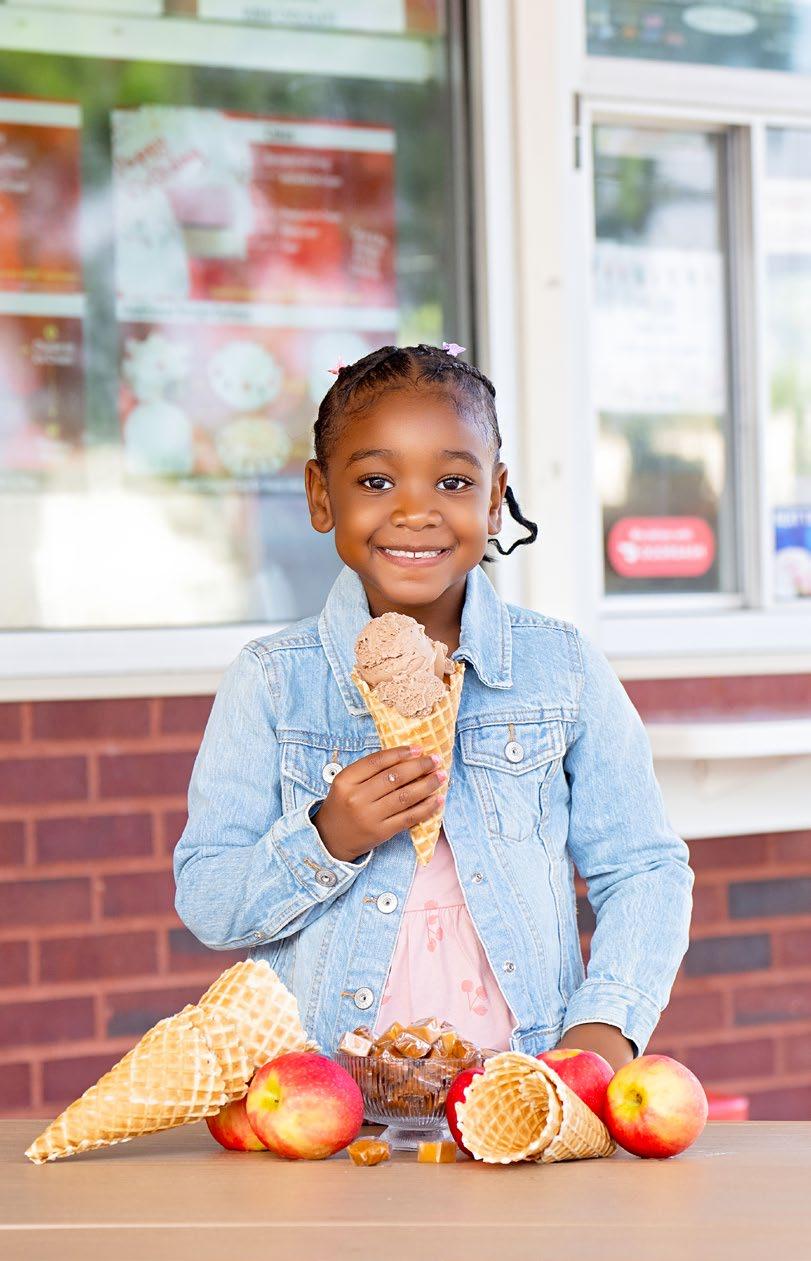
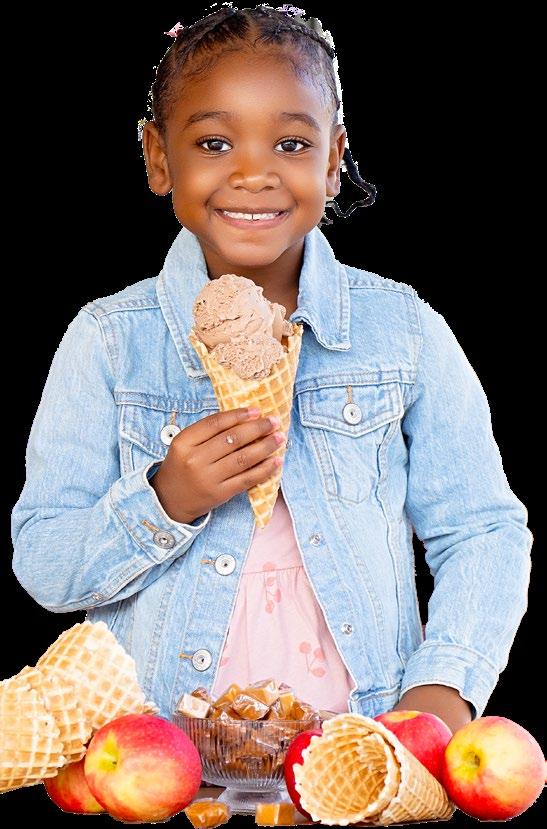
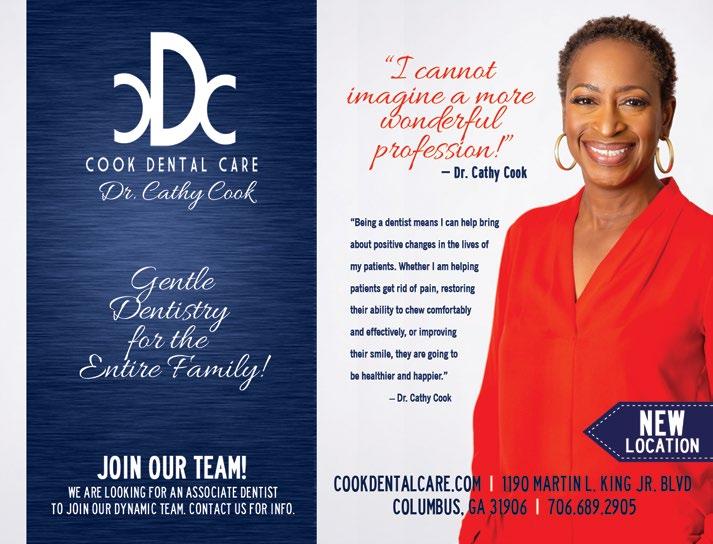






By Linda Ligon, Family & Kids
As your kids grow and start exploring the world around them, they will have many questions about what they observe. However, many parents wonder just how much detail they should share when their child becomes curious about something she has seen or heard. Here are some tips on what you should discuss or avoid discussing with your kids.
DetAils About finAnciAl troubles. Finances are often a cause of stress for adults, but do not share your financial worries with your child. Children thrive when they feel they are in a safe, structured environment and it is not appropriate to share your stress or worry with them. Your child is not yet able to understand the complex world of adult finances and may misunderstand a small issue and turn it into one that causes fear that they will not be able to have a place to live or have food to eat.
WhAt to Discuss insteAD: Share with your child the general idea of staying within a budget each month. You could use the budget as the reason for not being able to buy an expensive toy your child wants, instead of going into detail why you do not have the money for it. When kids are old enough to earn an allowance, creating a budget is a valuable money management tool you can help them learn.
thoughts About boDy imAge. Try to avoid making comments about your body or someone else’s. If you practice this all the time, even when your kids are not around, it is easier to avoid slipping up and saying something negative in front of your kids. This may not be easy if you are feeling frustrated about an issue such as weight loss or finding the right clothes to wear. However, remember that your kids are always watching and listening.
If you frequently share thoughts about your appearance or someone else’s in front of your kids, your kids may become overly concerned about their own appearance. This goes for positive comments also. Think about how your child might feel if she constantly hears you say your friend always looks perfect and you wish you looked like her.
WhAt to Do insteAD: Take the emphasis off appearance and focus on topics such as what we need to do to help our bodies stay healthy (get enough sleep, eat a balanced diet, exercise, visit the doctor for checkups). Explain the basic anatomy of the body in an age-appropriate manner. As your child approaches puberty, explain the changes the body goes through during puberty and teach your child about healthy relationships, setting boundaries and keeping herself safe.
criticism of your spouse or other cAregiver. Making negative comments about your spouse in front of your child can damage your child’s feeling of security and make her feel that she must choose sides. Your child may worry that since you are not getting along with your spouse, you may get a divorce, and she will have to choose who to live with.
WhAt to Do insteAD: Rely on another adult for emotional support when having difficult issues with your spouse. Discuss difficult, adult topics out of earshot of your child and, for the most part, try to also keep most minor disagreements behind closed doors. However, discussing a minor disagreement involving a non-adult topic in the open with your spouse is OK occasionally, as you can use it as an opportunity to model how to resolve conflict in a healthy manner.


After we were unable to recover our original Facebook page from an evil hacker, we conceeded and started over with a new one. To stay connected with us and share with the local parenting community, follow our new page at: www.Facebook.com/FamilyAndKidsColumbus



Rickets is a condition that causes a child’s bones to soften and weaken. This often leads to the bones bending and warping, and a child with rickets may have bowed legs. This bending and warping may also cause bone pain, and the child may also be more likely to suffer from broken bones. Other symptoms of rickets include dental problems like cavities, seizures, unusual curving of the spine or skull and weak muscle tone.
The most common cause of rickets is a vitamin D deficiency. Vitamin D is a fat-soluble nutrient that the body makes when exposed to the sun and may also be present in some foods such as salmon and vitamin D fortified milk. Vitamin D helps the small intestine do a better job at absorbing calcium and phosphorus from food. Calcium and phosphorus are the primary building blocks of strong bones, forming a strong matrix that provides structural support.
The general treatment for rickets caused by a Vitamin D deficiency is to supplement the diet with Vitamin D or calcium. If rickets have caused deformations in the
By Linda, Ligon, Family & Kids
bones, surgery may be necessary to help correct them. Adding vitamin D and calcium-rich foods to the diet can also help treat rickets. Ensuring that your child gets enough vitamin D and calcium on a regular basis can help prevent rickets. If you exclusively breastfeed your baby, ask your baby’s pediatrician what dosage of a vitamin D supplement your baby will need daily, since breastmilk alone does not have enough vitamin D for your baby.
In some cases, rickets is caused by a rare inherited genetic disorder rather than by a diet deficient in Vitamin D. Vitamin D-dependent rickets (VDDR) and Hereditary hypophosphatemic rickets are two of the most common inherited forms of the disease. The genetic mutation behind inherited forms of rickets affects vitamin D metabolism or phosphate regulation. To treat genetic forms of rickets, medications may be necessary in addition to supplementation with Vitamin D and calcium.



What we feed our families today shapes not only how they grow—but how they heal.
In Muscogee County, where 1 in 5 deaths is linked to heart disease and over 21% of residents are food-insecure, access to nourishing food isn’t just a matter of health—it’s a matter of survival. But for many families, eating healthier can feel overwhelming, expensive, or out of reach.
The Food Mill, a Columbus-based nonprofit, is helping families overcome those barriers by making healthy food more accessible, affordable, and empowering. Through free nutrition education classes, a Mobile Market stocked with fresh, local produce, and hands-on culinary training, The Food Mill is creating long-term health change—one meal at a time.
“Food is the most basic form of love,” says Olivia Amos, Executive Director of The Food Mill. “We believe everyone deserves access to food that not only fills their bellies but truly nourishes their bodies.”
That belief is more urgent than ever. Families struggling with access to healthy food are more likely to face diet-related illnesses like diabetes, heart disease, and high blood pressure. Yet, small changes—like increasing vegetable intake, learning to read nutrition labels, or replacing processed snacks with whole foods—can make a meaningful difference.
That’s exactly what Shericka Huling, a local mother of four, discovered after completing The Food Mill’s Cooking Matters program.
“When I started this class, my daughter had just been diagnosed with diabetes. She was on insulin,” Shericka shares. “But since we’ve incorporated more vegetables, smaller portions, and started paying attention to what she eats, she was able to come off all her insulin. This class helped me learn how to cook healthier and make better choices for my whole family.”
The Food Mill’s Cooking Matters course —offered in partnership with Open Hand Atlanta—is a free, six-week class that teaches families how to shop smart, cook nutritious meals on a budget, and stretch every grocery dollar. Each week, participants receive a bag of fresh produce to take home and apply the lessons they learn in class.
The Food Mill’s Mobile Market brings fresh, affordable produce directly into neighborhoods where grocery access is limited. With regular stops


at schools, health clinics, and community centers, the market sold more than 12,000 pounds of produce in 2024 and offered over $11,000 in discounts to ensure affordability—including more than $4,600 in SNAP/EBT support.
What makes The Food Mill’s model effective is how it layers its programs for lasting change. Families who shop at the Mobile Market are encouraged to also enroll in the cooking classes. This wraparound approach ensures families have both access and knowledge, which research shows is critical to improving long-term health outcomes. Small steps can lead to powerful change. Families can begin by cooking together once a week, trying one new fruit or vegetable, or swapping out high-sugar snacks for homemade alternatives. The Food Mill can guide and support that journey.
“When you give families the tools and access to make healthier choices, they rise to the occasion,” says Amos. “We’ve seen it firsthand.”
At The Food Mill, food isn’t just about what’s on your plate—it’s about healing bodies, strengthening families, and building healthier futures for the next generation.
Families can sign up for a free Cooking Matters class, view the Mobile Market calendar, and make cafe/catering orders at thefoodmill.org.
As a nonprofit organization, The Food Mill relies on community support to keep its programs thriving. Donations can be made online to help expand access to nutritious food, hands-on education, and economic opportunity for families across the Chattahoochee Valley.


By Linda Ligon, Family & Kids
Nicotine products such as pouches can easily fall into the hands of a toddler or baby exploring his surroundings. Unfortunately, not all nicotine products such as pouches and vape e-liquids come in child resistant packaging, and toddlers love to investigate new objects by chewing on them. Nicotine is a toxic chemical, and a severe case of nicotine poisoning can have a tragic outcome for a baby or toddler due to their small size.
Nicotine pouches and other nicotine products such as e-liquids often have flavors added to them, increasing the risk that they will be ingested by a toddler. Nicotine pouches are small and easy for toddlers to put in their mouths. In addition, many people keep nicotine products close to them in a purse or on a counter instead of locking them up.
The nicotine in nicotine pouches and vape e-liquids is highly concentrated and could exceed the fatal dose if a toddler or baby ingests a pouch or e-liquid or touches spilled e-liquid. There are up to 6 mg of nicotine in a pouch and e-liquid refills may contain 10 ml to 30 ml (2
to 6 teaspoons) of product. Ingesting as little as 1 teaspoon of e-liquid nicotine can be fatal for a 26-pound child. Poisoning due to touching e-liquid nicotine can occur within minutes of the first contact with a toddler’s skin.
Nicotine is a stimulant, and early symptoms of nicotine poisoning include increased heart rate, nausea and vomiting along with increased blood pressure and rapid, heavy breathing. There may also be increased sweating and salivation, seizures and a loss of control over muscles. The early symptoms of nicotine poisoning usually occur within 15 minutes.
Late signs of nicotine poisoning include shock, a drop in blood pressure, coma, difficulty breathing, respiratory failure, abnormal heart rhythms and diarrhea. Late signs of nicotine poisoning occur within 30 minutes to 4 hours after initial exposure. If you suspect that your child may have been exposed to a nicotine product, call Poison Control at 1-800-222-1222. Prevent nicotine poisoning by locking all nicotine products up out of sight and reach of children.
Resources: http://bit.ly/4fjZU1k
Did you know that some amazing things happened in history during the fall season? Let’s take a trip back in time to discover a few fun facts about September!
Over 200 years ago, in September 1783, the first passengers in a hot air balloon took flight in France—but they weren’t people! A sheep, a duck, and a rooster floated high into the sky. The king wanted to see if it was safe before letting humans try it. Luckily, the animals landed safely—and hot air balloons became a new way to fly!
September is also when Johnny Appleseed was born—on September 26, 1774! His real name was John Chapman, and he loved planting apple trees all across the American frontier. Thanks to him, many families had fresh apples to enjoy every fall.
And here’s a silly one: in September 1908, the very first Ford Model T car came off the assembly line. It changed how people traveled—but it could only go about 40 miles per hour!
So when you feel the cool breeze and see the leaves start to change, remember—fall isn’t just full of color, it’s full of fascinating history too!

By Emily Griswell • Librarian, North Columbus Public Library
You pour so much into others—kids, work, home, schedules. But who’s pouring into you? As the school year settles in, now’s the time to reclaim a little space for yourself. Chattahoochee Valley Libraries aren’t just for children’s storytimes and summer reading. We’re here for you, too.
Our Libraries offer free programs and resources designed with caregivers in mind. Whether you’re looking to rest, reflect, move, or reconnect, the Library can be your space to recharge.
Self-Care That Sets an Example
Finding time for yourself isn’t selfish—it’s essential. Even a short break can lower stress and boost your ability to show up fully for your family. Join us for a book club, movie night, craft session, or even a quiet hour with a puzzle. And remember: when your kids see you practicing selfcare, they learn it’s important for them, too.
Wellness for Body and Mind
Your health matters. Our Libraries host walking clubs and yoga sessions that help you move at your own pace, in good company. Through a
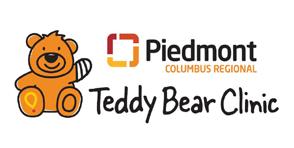
Saturday, September 6
10 a.m. to Noon
Piedmont Midtown Conference Center



partnership with the Pastoral Institute, we also offer mental wellness programs like art therapy and music sessions—safe spaces to reflect, express, and heal.
Free and Easy Date Nights
Caregivers need connection, too. A night out doesn’t have to be expensive or complicated. Whether you’re attending a special event or just enjoying a quiet program together, the Library offers a relaxed, low-cost way to spend time with someone you love.
These programs and more are happening year-round at Chattahoochee Valley Libraries. Explore what’s coming up at cvlga.org or pick up a program guide from your local branch.
Looking for inspiration at home? Try one of these reads!
• The Kids Are in Bed by Rachel Bertsche
• Parent Yourself First by Krissy Pozatek
• How to Handle More Than You Can Handle by Kimberly Rae HOO’s
Your child can bring their favorite teddy bear or stuffed animal to get check-ups designed just for them—which will teach your child what it’s like to get a cast, shots, X-rays, and more.
Other activities at this free event include:
• Activities that teach about first aid & safety
• Ambulance and fire truck tours
• Crafts and snacks


RSVP on Facebook
Piedmont Columbus Regional Foundation
Located under “Events”
The Shelby and Wanda Amos Foundation

Turn ordinary pine cones into adorable Pinecone Owl Friends—a whimsical fall craft kids will love to create and display! Kids can make a whole family of owls in different colors. It’s a fun way to celebrate nature and the season!
Prep your pine cone – Brush off any dirt and make sure it's dry.

Make the eyes – Cut out two white felt circles (slightly larger than googly eyes) and glue them on the pine cone. Then glue googly eyes on top.
Add a beak – Cut a small triangle from orange felt and glue it just under the eyes.
Create wings – Cut two wing shapes from brown or patterned felt. Glue them to the sides of the pine cone.
Add feet (optional) – Cut tiny feet from orange felt and glue them at the bottom.
Display – Place your owl on a twig or shelf for a cute fall touch!
• Pine cones (medium to large, open scales work best)
• Felt sheets (brown, orange, yellow, white)
Googly eyes
• Craft glue or hot glue (adult supervision required)
• Scissors
• Small twigs (optional, for perches)
By Kayla Holzwarth, Family Advocacy Program Specialist, Fort Benning
Domestic violence and child abuse do not just leave bruises on skin; they carve deep wounds into the mind and soul. For many, especially kids who grow up in unstable or abusive homes, the pain sticks around long after the shouting stops. It shows anxiety, depression, trouble forming healthy relationships, and for some, thoughts of ending their life. Suicide is not just about one bad day, it is often the result of years spent feeling worthless, scared, or hopeless.
MILITARY EXPECTATIONS: In the military, where toughness is expected and silence is often the norm, talking about trauma can feel like breaking a rule. Service members are trained to push through, not show weakness. But when someone is already carrying pain from childhood or dealing with abuse in their personal life, that pressure can be too much. Without support, some feel like there is no way out.
RESOURCES: That is why programs like the Family Advocacy Program (FAP) matter. FAP is designed to help military families deal with domestic violence, child abuse, and other tough situations. They offer safety planning, parenting support, and even help for new parents trying to build healthy homes. You can reach out to the Fort Benning FAP at (706)544-7233 (SAFE) for assistance.
By Linda Ligon, Family & Kids
Another resource is Military OneSource. It is available 24/7 and offers confidential support for everything from emotional struggles to financial stress. They have counselors, parenting tips, relationship advice, and even help with PCS moves and education. Call 800-342-9647 or visit Military OneSource online to get started.
Abuse leaves lasting damage, and not everyone gets the help they need to heal. Talking about mental health, especially in high-pressure communities like the military, should be as normal as talking about physical fitness. We need to create spaces where people can speak up without fear of being judged or punished.
Suicide prevention is about catching the pain early, listening more, and protecting each other when the world gets dark.
Talking about ways to die • Extreme emotional pain
Reckless behavior • Sleeping too much or too little
Withdrawal from friends, family and social activities
Expressing hopelessness • Sudden mood swings

f you suffer from depression or anxiety, going out for a run or a workout at the gym may not be at the top of your to-do list. It may feel hard just to get started with your day. However, once you do start making exercise part of your daily routine, research studies show that exercise can help ease depression and anxiety. The exact reasons why exercise can help fight depression are not clear, but here are some benefits noted by researchers.
When you exercise, your body releases endorphins that help improve mood. Endorphins are natural chemicals, called neurotransmitters, released by the pituitary gland that bind to receptors in the brain. Endorphins can help reduce depression and anxiety, along with providing a feeling of pleasure and well-being. ‘Runner’s high’ is sometimes used to describe this release of endorphins.
Exercise can help you focus on something besides issues that are adding to your depression and anxiety. When you exercise and focus on the activity, it is an opportunity to take a break from your worries. Exercising outdoors in a natural setting can provide an additional
benefit, as studies show that spending time surrounded by nature can help ease depression and anxiety.
Exercise can help you improve your confidence and self-esteem. After obtaining clearance to start a new exercise program from your doctor, seek advice from a personal trainer about a fitness program tailored to your fitness goals and your current level of physical fitness. Ask your personal trainer to help you set milestones you can aim for and gradually work to improve your fitness. You will feel a sense of accomplishment every time you achieve a milestone.
Exercising can also help you feel tired and ready to go to sleep on time. Improving sleep can assist with fighting depression and anxiety. However, be mindful of the timing of intense exercise, as some people are sensitive to vigorous exercise too close to bedtime and it may interfere with falling asleep. Studies show that moderate activities such as yoga, light stretching and walking are ok about 90 minutes before bedtime while vigorous exercise should be completed two to four hours before bedtime.













MONDAY
Sapo’s
5pm until close: free kid's meal with adult entree, dine in only
Tuesday
Chicken Salad Chick
Free Little Chick Meal with purchase of adult meal
Denny’s
4-10pm: Up to two free kids entrées with adult entrée for kids 10 and under
Ruby Tuesday
5-10pm: Kids 12 and under eat free with adult entrée
wednesDAY
Your Pie
Kid's meals half off with adult entree
Red Robin
Kid’s meal half off with adult meal, for kids 11 and under
thursDAY
Tuesday's Street Tacos & Burritos
Free kids meal with adult purchase; dine-in only
All locations are Columbus, GA unless noted. Specials are subject to change without notice, so please verify them directly before dining. Send kids deals to Tammy@FamilyAndKidsGA.com.
friday
Denny’s
4-10pm: Up to two free kids entrées with adult entrée for kids 10 and under
Saturday
The Food Mill
Free kid's meal with any regular priced brunch item from 9am-2pm
multiple days
Bruster’s Ice Cream
Kids under 40” get free baby cone
McAlister’s
Kid’s meals are $2.79 with dine-in order
Smokey Bones
Free kid's meal off kid's menu with adult entrée
Does your restaurant have a special offer for kids?!
Let us know and we can promote it here for free to 20K local parents monthly.
Email it to us at: Tammy@familyandkidsga.com
This dish is perfect for play dates, weekend snacks, or a sweet ending to family dinner. It's quick to assemble, requires minimal ingredients, and offers a great opportunity for little hands to help with layering, sprinkling, and of course taste-testing!
1. Chop apples into small cubes.
2. In a skillet, melt butter over medium heat. Add apples, cinnamon, and brown sugar. Cook for about 5–7 minutes, until apples are soft and caramelized.
3. Spread pita chips on a plate or platter.
4. Spoon warm apples evenly over chips.
5. Top it off with whipped cream or a drizzle of caramel if desired.
6. Serve warm and enjoy as a finger food or with forks. It’s fall in every bite—and fun for kids to make their own “nacho” creations!

• 2 apples (Granny Smith or Honeycrisp)
• 1 tbsp butter
• 1 tsp cinnamon
• 1 tbsp brown sugar
• 1 bag cinnamon sugar pita chips (or plain tortilla chips with cinnamon sugar sprinkled on top)
• Whipped cream or vanilla yogurt (optional)
• Caramel drizzle (optional)
Crunchy, sweet, and perfectly portable—apples are one of the most kid-friendly fruits around! Whether packed in a lunchbox or baked into a cozy fall treat like Apple Pie Nachos, apples are not just delicious—they’re full of fun and benefits too!
Health Benefits
Apples are packed with fiber, which helps keep tummies happy and digestion healthy. Just one medium apple contains around 4 grams of fiber, especially when eaten with the skin on. Apples are also high in vitamin C, which helps boost the immune system, perfect for cold and flu season! They’re also a great low-calorie snack that keeps kids full and energized without added sugar. Plus, apples contain antioxidants that help keep little bodies strong and growing.
Fun Apple Facts
• There are over 7,500 varieties of apples grown around the world! That’s a lot of crunch.
• Apples float in water because 25% of their volume is air, making them the star of classic fall games like apple bobbing.
• The scientific name for an apple tree is Malus domestica, but we’ll stick with “apple tree” for now!
• Apples are a member of the rose family, just like pears and plums.
• The largest apple ever recorded weighed over four pounds!
Seasonal Fun
Fall is prime apple season, and many families love visiting orchards for apple-picking. It's a great way to connect kids with where their food comes from—and sneak in a bit of fresh air and movement too!
Whether served fresh, sliced with peanut butter, or transformed into a fun dish like our Apple Pie Nachos, apples are the ultimate fruit of the season. So grab a bunch and get snacking—it’s apple-lutely worth it!
1 Labor Day Fair. 10am-4pm. Old Russell County Courthouse; Seale; 706-298-6426
2 Little Sprouts. 10am. Ages 3-5. $5-7. Columbus Botanical Garden; 706-327-8400
2 Pony Bead Party. Ages 5-12. 4pm. Columbus Library; 706-243-2813
2 Teen Takeover: Get Your Game On: Teens vs Librarians. 4:30pm. Columbus Library; 706-243-2811
4 Simple Steps: Play. Ages 2-5. 10am. South Columbus Library; 706-683-8805
4 Kids Night with Oxbow Meadows. 6-7:30pm. Ages 12 & under. Golden Donut; 706-660-8783
5 Teen Takeover: Snack Taste Test. 4:30pm. Columbus Library; 706-243-2811
6 Oh My Gourd, Let’s Get Peachy Fall Celebration. 11am-4pm. 900 Front Ave, Columbus.
6 Annual Teddy Bear Clinic. 10am-Noon. Piedmont Conference Center; 706-660-6204 or visitcolumbusga.org
6 Artful Babies. 6-24mo. 10:30am. Columbus Museum; 706-748-2562
6 Grandparents’ Day Tea Party. Families. RSVP. 11am. N. Columbus Library; 706-748-2855
6 Dog Splash and Luau at Liberty Bell Pool. 1-3pm. $10/dog. $5 parking. F. D. Roosevelt State Park; 706-663-4858
6 Grandparents’ Day Celebration. Families. 4pm. Mildred L. Terry Library; 706-243-2782
6 Astronomy Night. 8pm. Coca-Cola Space Science Center; 706-649-1477
8 Postpartum Circle: Group Discussion. Families. 11am. Columbus Library; 706243-2813
8 Family Fun Night: Family Field Day. 4pm. Columbus Library; 706-243-2813
8 Teen Movie Mondays. Teen. 4pm. South Columbus Library; 706-683-8805
8 Teen Movie Mondays: Roll For Viewing. 4:30pm. Columbus Library; 706-243-2811
8 Mommy & Me Playdate. Peachtree Mall Play Area. 10am-Noon.
9 Artful Babies. 6-24mo. 10:30am. Columbus Museum; 706-748-2562
9 Simple Steps Storytime: Meet the Mascots: Torch & Scorch. Ages 3-5. 11am. North Columbus Library; 706-748-2855
9 After School Art Break. 2:30pm. Ages 5-10. Columbus Museum; 706-748-2562
9 Stories on Stage: In The Garden With Rikki Tikki Tavi. Families. 3pm. South Columbus Library; 706-683-8805
9 Kid’s Art Studio. Ages 5-12. 4pm. Columbus Library; 706-243-2813
9Teen Takeover: Anime Club. 4:30pm. Columbus Library; 706-243-2811
9-28The Wiz. Times vary. Springer Opera House; 706-327-3688
10-20 Just 4 Kidz Consignment Sale. 3201 Macon Road; just4kidzconsign.com
11 Budding Naturalist. 10-11am. $7. Columbus Botanical Garden, 706-327-8400
11 Tee Like a Lady Golf Clinic. 10:30am1:30pm. Bull Creek Golf Course; keepcolumbusbeautifulga.org
11 Garden Volunteer Work Day. Columbus Museum, 8:30am-Noon.
12 We Care Vet Fair. 8:30am-6pm. Columbus Civic Center; WeCareVetFair.com
12 Grannycore: Scrapbooking. Families. 4pm. Columbus Library; 706-243-2813
12 KCBC Mayor’s Golf Tournament. Tee off at 1pm. Bull Creek Golf Course. Registration: charitygolftoday.com
12-13
Harris Co PRCA ProRodeo. 6pm. Harris County Agri-Center, hccaonline.com
12-28 Pilgrim: A Modern Musical Adaptation of Pilgrim's Progress. Times Vary. Family Theatre; 706-431-3752
13 Yoga at the Museum. Columbus Museum. 10:30am.
13 Mini Makers. 2-4yr. 10:30am. Columbus Museum; 706-748-2562
13-14 Pumpkins at Callaway Gardens. 4-9pm. Robin Lake Beach; 800-CALLAWAY
15 Teen Movie Mondays: Roll For Viewing. 4:30pm. Columbus Library; 706-243-2811
16 Mini Makers. 2-4yr. 10:30am. Columbus Museum; 706-748-2562
16 Pony Bead Party. Ages 5-12. 4pm. Columbus Library; 706-243-2813
16 Teen Crafternoon: Roll For Inspiration. 4:30pm. Columbus Library; 706-243-2811
16 Teen Takeover: Drone Day. (No Outside Drones). 4:30pm. South Columbus Library; 706-683-8805
18 Edible Engineering: Edible Mars Rovers. Ages 6-11. 3pm. North Columbus Library; 706-748-2855
18 Teen Takeover: Crafts. 6pm. North Columbus Library; 706-748-2855
19-20 The House at Pooh Corner. 7:30pm. Family Theatre; 706-431-3752
19-21 Pumpkins at Callaway Gardens. 4-9pm. Robin Lake Beach; 800-CALLAWAY
20 Midland Commons & SFS Fall Market. 11am-3pm. 6835 Midland Commons Blvd; facebook.com
20 CSO Open Rehearsal. 12:30pm. Free. All ages. RiverCenter; 706-323-5059
20 CSO presents Tchaikovsky & Dvorak. 7:30pm. $10-$45. RiverCenter; 706-323-5059

PROVIDED IN PARTNERSHIP WITH:


21 The House at Pooh Corner. 2:30pm. Family Theatre; 706-431-3752
21 Wizards & Waffles Harry Potter Brunch. 10-3pm. Hudson’s at Main Street. 6385 Main St, Columbus
22 Teen Movie Mondays: Roll For Viewing. 4:30pm. Columbus Library; 706-243-2811
23 Bubble Party. Families. 3pm. South Columbus Library; 706-683-8805
23 Kid’s Art Studio. Ages 5-12. 4pm. Columbus Library; 706-243-2813
24 Seedling Storytime. 10-11am. $7. Columbus Botanical Garden, 706-327-8400
25 Tabletop Games for Teens. 6pm. North Columbus Library; 706-748-2855
26 Side Quest: Mini Adventure. Families. 4pm. Columbus Library. 3000 Macon Rd. 706-243-2813
26-27 The House at Pooh Corner. 7:30pm. Family Theatre; 706-431-3752
26-28 Pumpkins at Callaway Gardens. 4-9pm. Robin Lake Beach; 800-CALLAWAY
26 Yoga in the Garden. Columbus Botanical Garden. 9:30am.
27 Family Saturday. 10am-Noon. Columbus Museum; 706-748-2562
27Bluebelle Fall Kickoff. 10am-3pm. Bluebelle Local Mercantile; 706-327-1181
27 Hispanic Heritage Month Celebration. Families. 2pm. Mildred L. Terry Library; 706243-2782
27 Anime Club: Character Tier Ranking. Teen. 3pm. North Columbus Library; 706748-2855
28 The House at Pooh Corner. 2:30pm. Family Theatre; 706-431-3752
29 Teen Movie Mondays: The Twilight Saga: Twilight (PG-13).4:30pm. Columbus Library; 706-243-2811
30 Pony Bead Party. Ages 5-12. 4pm. Columbus Library; 706-243-2813
30 Teen Crafternoon: Junk Journals. 4:30pm. Columbus Library; 706-243-2811
30 Teen Takeover: Anime Club. 4:30pm. South Columbus Library; 706-683-8805
MONDAY
Simple Steps Storytime: Babies & Toddlers. Ages 0-36mo. 1am. Columbus Library; 706-243-2813 (Not 9/1)
Little Bellas Columbus. 5-7 pm. Ages 7-13. Standing Boy Trails; info@littlebellas.org. (Not 9/1)
TUESDAY
Simple Steps Storytime. Babies & Toddlers. Ages 0-24 mo. 10am; Preschoolers. Ages 3-5. 11am. North Columbus Library; 706-748-2855
Get On Board With Board Games: Chess & More. Families. 4:30pm. Mildred L. Terry Library; 706-243-2782
WEDNESDAY
Simple Steps Storytime. Ages 0-5. 11am. Mildred L. Terry Library; 706-243-2782
Discovery Hub. Ages 3-5. 11am. Columbus Library; 706-243-2813
Kids’ Corner. 4pm. Columbus Library; 706243-2813
Storytime with Grammy Trish. 11am. Columbus Bound Bookshop; visitcolumbusga.com
THURSDAY
Simple Steps Storytime: Family. Ages 0-5. 10am. Columbus Library; 706-2432813
Simple Steps Storytime: Family. Ages 0-5. 10am. South Columbus Library; 706-6838805 (Not 9/4)
Sight Word Support. K-3. 3-5pm. Mildred L. Terry Library; 706-243-2782
LEGOS® in the Library. Families. 3pm. Columbus Library; 706-243-2813
FRIDAY
Simple Steps Storytime: Rhythm & Rhyme. Ages 0-5. 10am. Columbus Library; 706-243-2813
Fun Fridays. Ages 5-12. 2pm. North Columbus Library; 706-748-2855
Farmstand Friday. 9-Noon. The Food Mill, 3280 2nd Avenue; 706-507-9209
Friday Night Concert Series. 7-10pm. Free. Uptown Columbus; 706-596-0111
SATURDAY
Market Days on Broadway. 9am-Noon. Uptown Columbus; uptowncolumbusga.com
Eye Spy Scavenger Hunt. 9am-4pm. $5 parking. F. D. Roosevelt State Park; 706663-4858
Toddler Time. 10am-Noon. $10. Ages 5 & under. Launch Trampoline Park; 706-2218680
Please call ahead to confirm event dates, times and age-appropriateness, in case changes were made after the info was obtained.



By Linda Ligon, Family &

he Chattahoochee Valley area offers many opportunities for after-school activities. Here are some tips on finding the right ones for your child.
ments. If your child needs to attend after-school care, do some research to find which one best fits your child’s needs. The safety of the facility and quality of the program is a top concern and should be considered first. An appropriate level of supervision should always be in place and you should validate the credentials of program staff. Next, make sure the program offered fits your child’s interests. Locally available private after-school care includes the Boys and Girls Club, Momentum After Care, the YMCA After Care and programs offered by Columbus Parks & Rec. If you are seeking a fun activity that will enhance your child’s STEAM skills, search for a STEAM after-school enrichment program such as Steam Inventors After-School Program. Your child’s school may also offer an after-school enrichment program.
Once you have the activities your child must attend, such as after-school care, on her calendar, you will be able to tell how much time your child will have free to pursue her interests. Avoid overscheduling your child, as it can lead to stress and take away opportunities for unstructured play. Studies show that free time for unstructured play is crucial to a child’s development. Also, if your child finds an activity she enjoys, such as dance or karate, it is likely she will need to devote an increasing amount of time to it as she advances in skill. Trying to select an activity for a young child may involve some trial and error. Avoid overscheduling your child with structured activities.
If your child has not yet learned to swim, put a high priority on signing your child up for swim
lessons. This a crucial life skill and is not just needed during the summer time. Check the swim lesson schedule at your local YMCA or at Columbus Swim and Scuba.
Watch your young child and see what she seems to enjoy the most. Is your child excited about sports and want you to play catch with her or does she love to sing and pretend she is performing in a concert?
Is your child’s personality a better match for team sports or for an individual activity such as martial arts or gymnastics? Even if your child has no interest in team sports, there are many opportunities for individual activities in the Chattahoochee Valley that promote physical fitness. Martial arts can promote physical fitness, confidence and discipline. Check the class schedule at East West Martial Arts or Momentum Martial Arts.
Does your child have an interest or talent in the arts? Find a program with some free play time for art so your budding artist can develop her creativity. Your child could try a class at the Columbus Museum or International Friendship Ministries. The Chattahoochee Valley has many opportunities for kids interested in dance. A dance class can help with physical fitness, motor skills and teach discipline. Local dance studios include Academy Dance, Performance Dance and Prodigy Dance. Kids interested in music can take lessons at Music Together or International Friendship Ministries.
Before signing your child up for an activity such as a team sport, explain to her that she is making a commitment and she will owe it to the team to finish the season even if she decides she does not like the sport. For individual activities, observe your child to see if she is enjoying it and it is a good fit.


















Martial arts aren’t just about learning how to block, kick, or earn a black belt—it’s a fun, full-body activity that helps kids grow in ways that might surprise you.
For starters, all that jumping, balancing, and practicing combinations helps build motor skills and coordination. Kids develop body awareness, balance, and control, which supports their physical development as they grow. These skills also carry over into other activities, from sports to everyday play. But martial arts also teaches some serious life skills. Respect, self-discipline, and focus are part of every class. Kids learn how to follow instructions, stay calm under pressure, and keep trying even when something feels tough. This kind of structured physical activity is proven to improve attention and reasoning skills, both in and out of the classroom.
One of the most powerful lessons in martial arts is the value of setting and achieving goals. Whether it’s working toward the next belt rank or mastering a new technique, kids discover
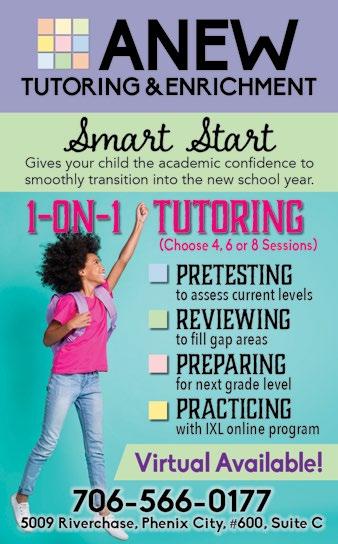

that success comes from consistent effort and persistence. That builds real confidence—and confidence leads to stronger decision-making and higher self-esteem.
The benefits often extend beyond the dojo. Many parents notice improvements at school, from better focus to more responsible behavior, and even academic growth.
And perhaps most important of all, martial arts help kids develop respect—for themselves, their instructors, and their peers. They learn to listen, cooperate, and support one another. It’s about building character just as much as building strength.
At East West Martial Arts, we offer programs for ages 5 and up, with engaging classes that blend fitness, self-defense, and life skills. For adults, we also have a dynamic Kali program that builds skill, agility, and confidence. Whether your goal is to help your child grow or to challenge yourself, there’s a place for you here.
Ready to get started? Join us for a trial class and see the difference martial arts can make. Call or Text 706-770-1155, email ewfma@ outlook.com, or visit EastWestFamilyMartialArts.com to learn more and take your first step today.
RESOURCES: www.ncbi.nlm.nih.gov/pmc/articles/PMC6659987/

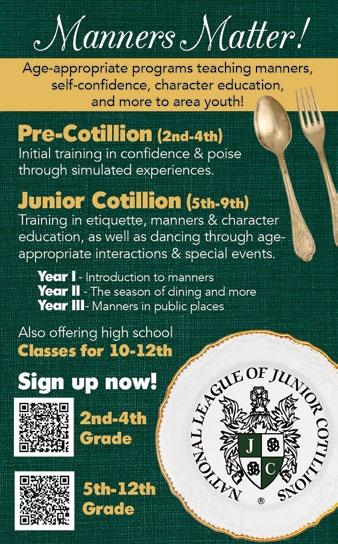











Tucker, 8 months Cataula

Toya, 3 years Columbus

By Linda Ligon, Family & Kids

Hudson, 2 years Phenix City
tudies suggest that exposure to pesticides may lead to neurological disorders, cancer, hormone disruption and developmental issues in children. While washing produce can help, it will only remove some of the pesticides from food. Buying organic produce, on the other hand, significantly reduces exposure to synthetic pesticides, but the cost of exclusively buying organic produce on a regular basis can be prohibitive for many families.
Although it is not possible to eliminate exposure to synthetic pesticides without buying only organic produce, selecting types of produce that contain low residual levels of pesticides can help reduce your family’s exposure. Here is a list of the top 15 most ‘clean’ produce items ranked by pesticide levels, according to the Environmental Working Group (EWG). For more toxicity reviews on food and products, visit EWG.org or download their app Healthy Living.
1. Avocados contain healthy fats as well as fiber and antioxidants.
2. Sweet corn (fresh and frozen) contains fiber, vitamins and antioxidants but is high in carbohydrates.
3. Pineapple is a good source of vitamin C, fiber and antioxidants. Pineapple also contains bromelain, an enzyme that assists with protein digestion.
4. Onions are rich in antioxidants and contain prebiotics that may assist with digestive health.
5. Papaya is full of nutrients, especially vitamins A, C and E and contains antioxidants such as lycopene. Papaya contains enzymes that help break down proteins.
6. Sweet peas (frozen) contain vitamins A, C and E along with zinc.
7. Asparagus is a good source of potassium, folate and antioxidants .
8. Honeydew melon contains vitamins C and B6 as well as fiber and can help with blood sugar regulation.
9. Kiwi is a good source of vitamins C and K and antioxidants.
10. Cabbage is high in vitamins and antioxidants but eating too much can cause digestive issues.
11. Watermelon contains an amino acid called citrulline that may help lower blood pressure
12. Mushrooms are packed with nutrients, including selenium and potassium.
13. Mangoes contain vitamins A and C.
14. & 15. Sweet potatoes and Carrots contain beta-carotene as well as vitamins and minerals. Resource: http://bit.ly/47jVpC3











Whether you see us for your first gynecologic exam, growing your family, or post-menopause issues, it’s our mission to deliver the highest quality of care in a comfortable, friendly environment. We understand the uniqueness of each woman’s healthcare needs and provide highly specialized care throughout every stage of a woman’s life. Our experienced team of skilled physicians and midwives relishes the opportunity to deliver comprehensive women’s healthcare – from routine wellness checks to specialized gynecologic and obstetric care –when you need it and where you need it, close to home. For